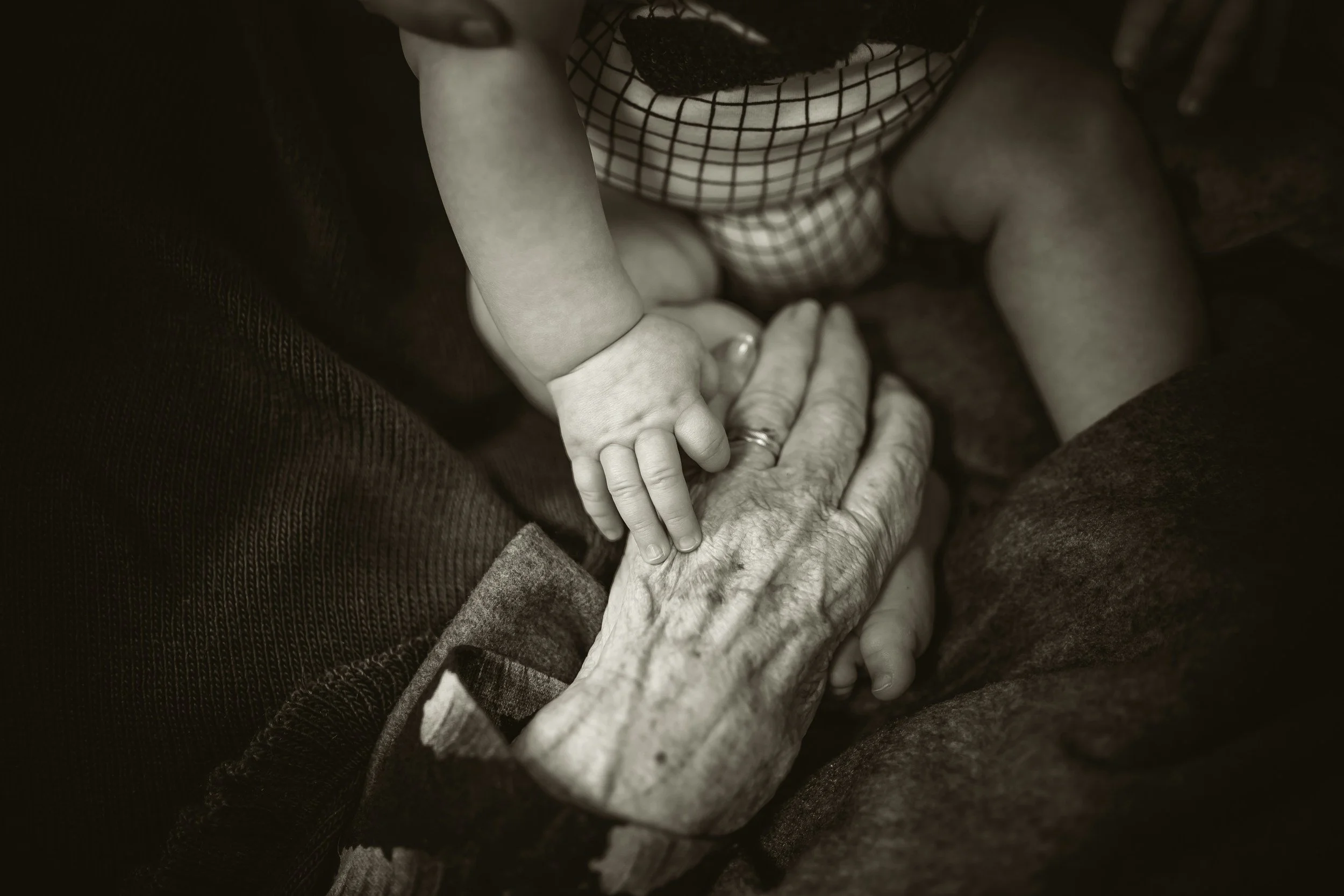Addressing Generational Trauma with IFS and Trauma-Informed Therapy
Generational trauma, also called intergenerational trauma, is the emotional and psychological pain passed down from one generation to the next. Inherited wounds often stem from systemic oppression, cultural displacement, war, colonization, abuse, addiction, or family dysfunction. Even if you did not directly experience the original trauma, you may still carry the emotional weight of it in your body, relationships, and worldview.
As a trauma-informed therapist I have seen how powerful therapy can be in helping clients identify, process, and release generational burdens.
What Is Generational Trauma?
Generational trauma refers to trauma that is not just experienced in an individual’s lifetime but passed down through family lines. It can be encoded in family stories, relational patterns, emotional suppression, and even epigenetics. If your parents or grandparents experienced traumatic events (such as racism, genocide, forced migration, food insecurity, poverty, or abuse) it is possible you have inherited the psychological and emotional effects.
You might find yourself reacting strongly to things that feel bigger than the present moment, struggling with guilt or shame that does not seem to have a clear source, or carrying a deep sense of not being safe, even when your current environment is relatively stable.
How Generational Trauma Can Present
Because generational trauma often operates under the surface, it can be hard to identify. Here are some possible examples:
Chronic anxiety or hypervigilance
Deep feelings of shame or worthlessness
A sense of being "too much" or "not enough"
Difficulty trusting others or forming secure relationships
Perfectionism or high levels of self-criticism
Repeating painful relational or behavioral patterns
Guilt or loyalty that keeps you stuck in family dynamics
Feeling emotionally disconnected or numb
Internalized oppression or identity confusion
Unexplained grief or emotional heaviness
With generational trauma, these symptoms might not trace back to a clear event in your own life, but they often make more sense in the context of your family history.
How IFS Helps with Generational Trauma
Internal Family Systems (IFS) therapy works by exploring the different “parts” within you, meaning protective parts that try to keep you safe, vulnerable parts that carry pain, and core parts of you that hold your wisdom and clarity (known in IFS as the Self).
Generational trauma can show up as burdens that certain parts of you carry, even if the trauma did not originate in your own life. IFS offers a non-pathologizing, compassionate way to understand and unburden these parts.
Legacy and Cultural Burdens in IFS
In IFS, we acknowledge that some parts of us carry legacy burdens- beliefs, roles, and pain inherited from ancestors or shaped by cultural oppression. These may show up as:
The belief that you must always put others first to be lovable
The fear of being seen or speaking up
Internalized racism, colorism, sexism, or ableism
Religious guilt or moral rigidity
Silence around abuse or family secrets
Pressure to succeed or suppress emotions to survive
Through IFS, we can connect with these burdened parts and begin the process of healing. This often includes:
Gently uncovering the origin of the burden
Witnessing the pain with compassion
Releasing the inherited burden
Replacing it with a new belief or energy aligned with healing and Self
This is not about blaming past generations, rather it is about understanding the survival strategies they developed, honoring their pain, and choosing not to pass it forward.
What Healing Can Look Like
When clients begin to heal generational trauma, they often notice:
More self-compassion and less inner criticism
Deeper emotional regulation and resilience
Stronger, healthier boundaries in relationships
Increased clarity about their own identity and values
A sense of liberation from inherited roles or guilt
Confidence in their parenting
Greater empathy toward their ancestors without having to carry their pain
This work is powerful and deeply personal. Healing generational trauma does not mean forgetting or denying the past. Addressing and healing generational trauma means choosing how it lives in you now and how you live your life now.
Working Together
As a therapist who practices IFS, EMDR, and specializes in trauma, including religious trauma and systemic harm, I offer a space where your story and your parts are honored with deep respect. If you suspect you are carrying generational burdens, whether from your family, culture, religion, or community— I would be honored to help you reconnect with your Self and explore what healing might look like.
Reach out to start therapy or to learn more.
Disclaimer:
⚠️ The content on this blog is intended for informational and educational purposes ONLY and should NOT be considered a substitute for personal professional mental health care, diagnosis, or treatment. Reading these posts does not establish a therapeutic relationship.
If you are currently in crisis, experiencing thoughts of harming yourself or others, or are in need of immediate support, please call 911 or contact a crisis line such as the Suicide & Crisis Lifeline at 988 (U.S.) or access your local emergency services.
These blog posts are written to explore topics like trauma, religious deconstruction, cults, identity development, and mental wellness in a thoughtful and compassionate way. They may (or may not) resonate deeply, especially for those healing from complex trauma, but they are NOT meant to replace individualized therapy or medical care.
